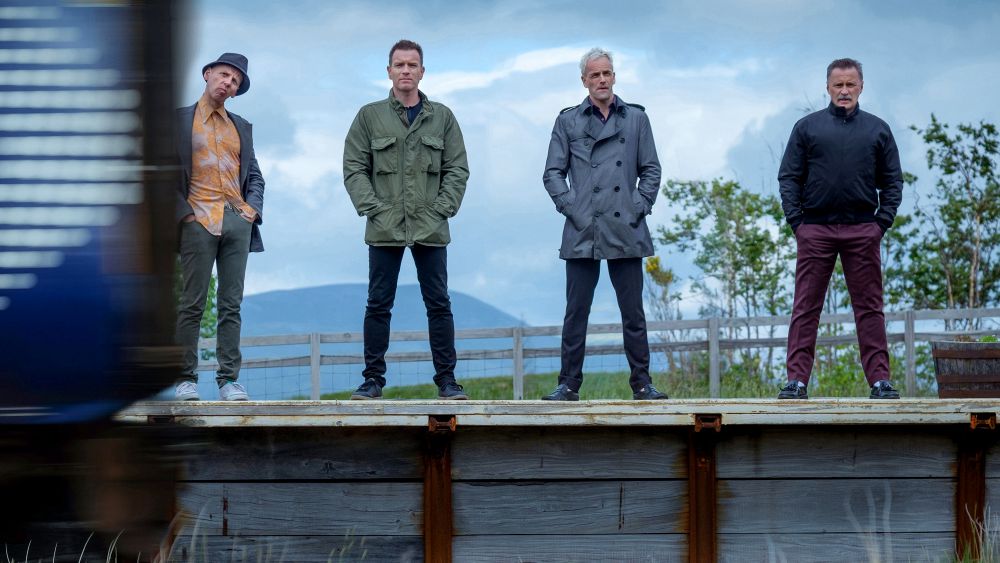Warning: spoilers ahead!
“Choose Facebook, Twitter, Instagram and hope that someone, somewhere cares.”
T2: Trainspotting may step away from the horrors of smack addiction but it still presents a society characterised by vice.
Twenty years ago, Mark Renton tapped into the vein of consumerism-fuelled dissatisfaction with one of the most classic monologues in cinematic history. Fast forward to 2017 and the universally embraced “CHOOSE LIFE” speech has been revamped for its new audience. Instead of washing machines and starter homes, viewers are confronted by the disturbing touchstones of modern life – choose reality TV, slut shaming, revenge porn.
Is this all that characterises our modern world? Can our millennial lives really be reduced to zero hour contracts, social media addiction and a penchant for public humiliation? Renton certainly thinks so. There’s no “choose Brexit.” There’s no “choose austerity” or “choose unbridled xenophobia.” In this respect, T2: Trainspotting shies away from the harsh reality of contemporary life. The political narratives of today are certainly backward-looking so we can’t really blame the nostalgic Renton for acting like a “tourist in his own youth.”
‘There’s no “choose Brexit.” There’s no “choose austerity” or “choose unbridled xenophobia.” In this respect, T2: Trainspotting shies away from the harsh reality of contemporary life’
T2 assimilates itself into the 21st century with both humour and self-deprecation. Renton and Sick Boy rediscover their friendship through snapchat filters and the latest games consoles with the over-enthusiasm of teenage boys. Begbie comically emerges from prison to a new, unfamiliar world. To his dismay, his son would rather study hotel management than pursue a career in cracking skulls. Furthermore, the film does interact with serious contemporary issues. Anjela Nedyalkova plays the Bulgarian Veronika and her story represents the pressing issues of sexual commodification and economic migration. She needs money to take home to her family. I’m sure you’ve all heard that one before, right? T2 does try to make light of her relationship with Sick Boy but the exploitation of sex workers is another disturbing concern to add to the bleak backdrop of Trainspotting.
‘The cracks in Renton’s life were once soldered up by drugs but now he’s addicted to running and unattainable fantasies of the perfect family’
Addiction remains the focal point of T2: Trainspotting but it’s no longer synonymous with heroin. The cracks in Renton’s life were once soldered up by drugs but now he’s addicted to running and unattainable fantasies of the perfect family. “Be addicted to something else” Renton tells his best mate Spud in one of the more moving scenes. Be addicted to exercise, Instagram, politics, screens, adrenaline, technology, social media – the list could go on and on. Take Diane, for example. The once adventurous, dissatisfied teen is now a lawyer. Her addiction? Money, job security, capitalism. T2 is trying to tell us that even in 2017, we’re all addicted to something. It’s just an unescapable aspect of life.
‘Ultimately, Danny Boyle isn’t really doing anything new with T2. The sequel combines its gruelling satire with plenty of poignant moments’
Ultimately, Danny Boyle isn’t really doing anything new with T2. The sequel combines its gruelling satire with plenty of poignant moments. There’s still betrayal, addiction and unbreakable friendship. Franco is still as psychotic as ever and Sick Boy has held his bitter grudge for twenty years. There’s seduction, angst, love, porn, drugs, family and blood. The vices and dilemmas that plagued the misfit group in 1996 are still at the foreground of the film, humorously interacting with aspects of the unforgiving, modern world.
In some ways, the characters in T2: Trainspotting are suffering from your average mid-life crisis – our world is evolving at a terrifying pace and they just can’t keep up.
Lucy Milburn
(Image courtesy of DNA Films)

